Never a Failure, Always a Lesson
A blind bread-seller's valuable life lesson for today's youths
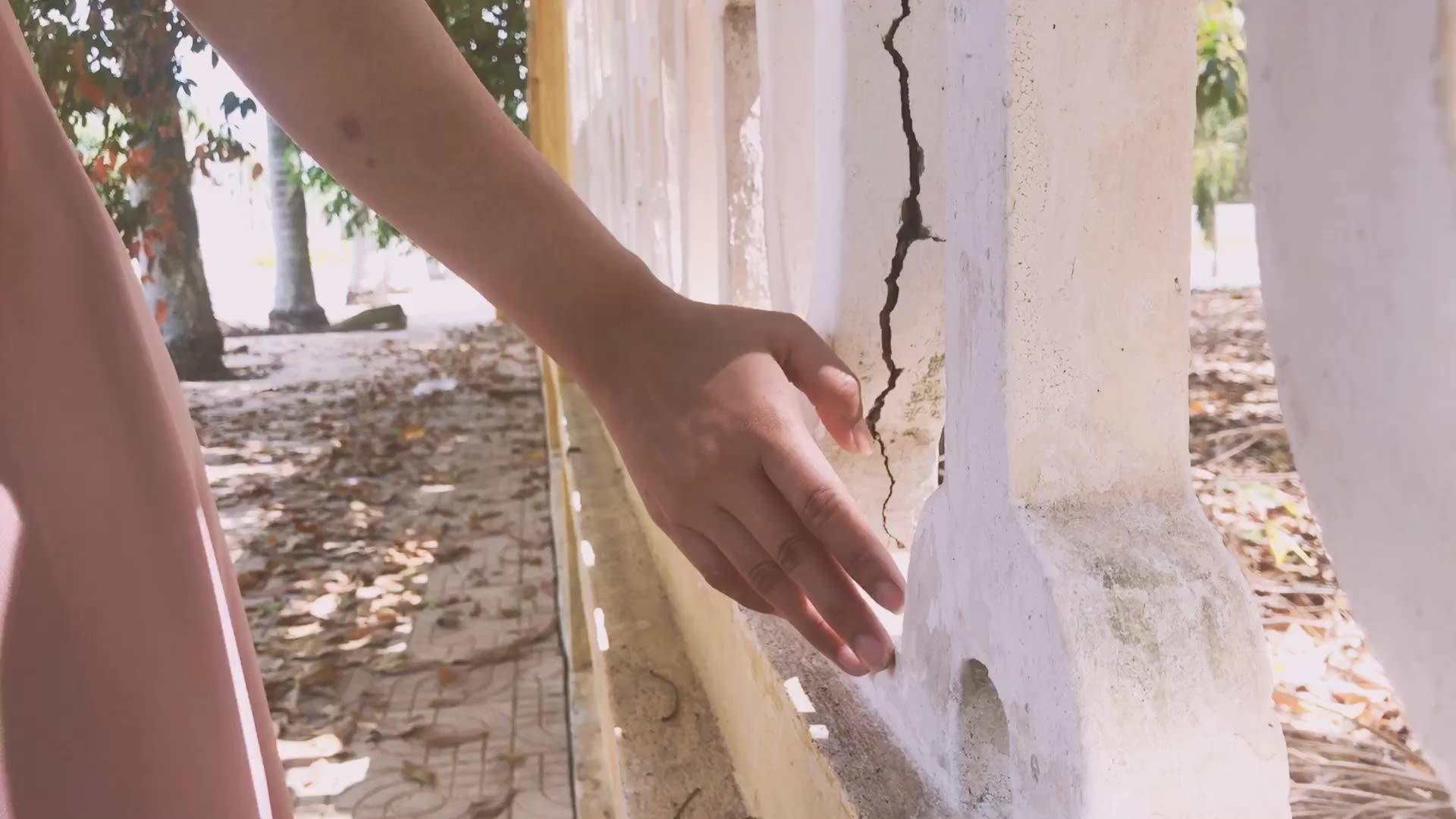
This story is part 6 of the series "Listening with the heart through generations" in which 11-13 year-olds tell the stories of those living on the fringe of society in Asia and how they found strength and inspirations to endure through decades of hardship and heartbreaks.
In partnership with D-PREP International School and Dreikönigsaktion Austria
Auntie Nid was sitting at the bus stop, waiting patiently, with her sweet smile, lighting up her charming face. Wearing a simple patterned T-shirt paired with comfortable indigo shorts, she was waiting to begin her adventurous day. Seventy-three year old Auntie Nid has been selling bread for over twenty years, six days a week. Her happiness is being able to sell bread and protect herself from harm. Nevertheless, it did not start this way.
As a child, Auntie Nid studied at a blind school in Angthong for many years. During her school years, her life was not any different from any other child, from going to school then going home to do homework, until she started working.
She first started selling lottery tickets, so she had to learn how to travel on her own. However, she would often get tricked by miscreant people.
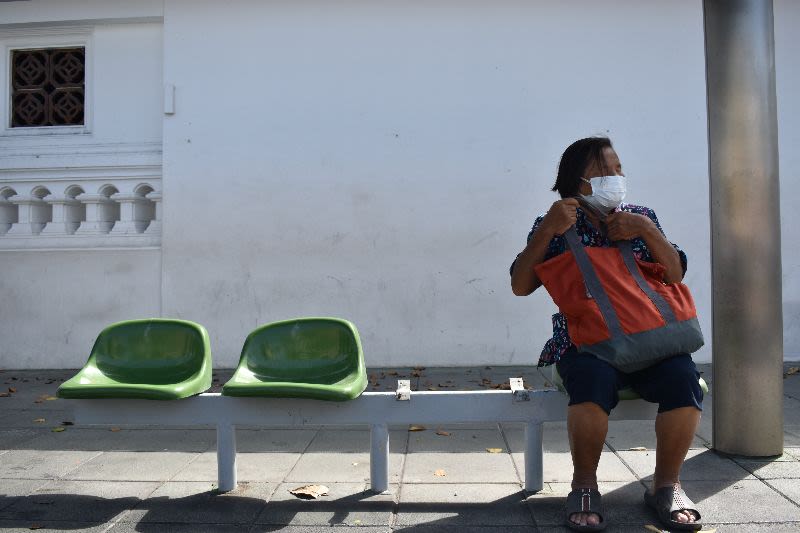
For instance, someone told her to go to a small dark alley where they will buy the lottery tickets, but instead the bad people stole all of her tickets.
Because of being unable to see she could not describe the thief, so therefore no one could help her.
Consequently, she decided to attempt selling bread instead, which was the starting point of her small business.
Independence
Auntie Nid works arduously to feed herself despite being blind.
Her store opens around 8:30 or 9:30 in the morning, depending on when the bread is distributed to her. If her profits are low she would usually arrive home around 7:00 in the evening, unless the sales are high and then she would be able to go home faster.
Regardless of having no family and relatives to rely on, she still managed to open a small bread business that has now been around for twenty years.
Furthermore, her income is not as much as her daily living expenses but she still makes her best effort.
She normally sells sixty to eighty pounds of bread per day, each pound she would get five baht; accordingly she gets approximately four hundred baht per day.
Moreover, Auntie Nid is currently renting a diminutive place which costs 3,000 to 4,000 baht per month (~US$110), and she receives 1500 baht (~US$40) from the government for people with disabilities.
She stated that if she had enough money she would purchase a new house, so she does not have to spend money for the rent.
Besides her expenses, she spends most of the week at her business.
There have been strenuous problems that she has had to face, such as not selling all her bread causing some of it to soon become stale, and people stealing her bread without paying.
Despite all the challenging obstacles she faces, she still has a kind loving heart, thus she always thinks that the people that steal her bread must not have anything to eat.
That is why she always thinks positive.

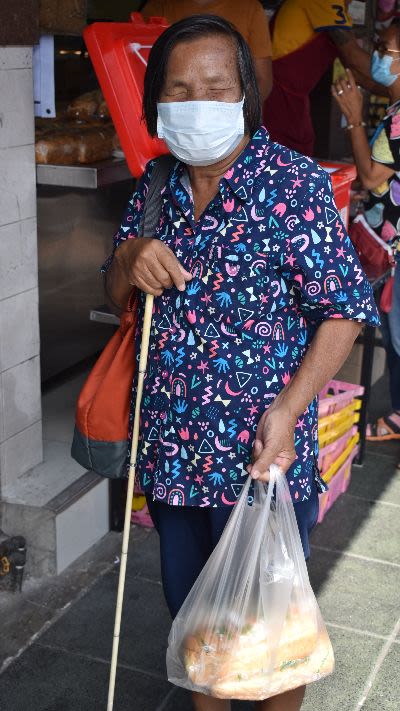
Never a failure, always a lesson
Additionally, Auntie Nid said that she does not want to be a burden to other people since they would be inconvenienced to travel to diverse places and would probably get annoyed by her.
For instance, when it was her mom’s funeral, her relatives did not even bother to come bring her to attend the funeral, therefore she asked her friends to pick her up. But she had to pay for the fuel of the trip and was only able to attend the funeral for one day, since she did not want to be a burden to her friend.
One person who encourages Auntie Nid is Thailand's King Rama IX. He stated that we have to try our best to do what we can do. Furthermore the king guided and assisted everyone, and never gave up on what he was facing.
This is why the king inspired Auntie Nid to be resilient.
In addition, she stated that she learned to be strong from the experiences and lessons in the past.
She always lives by the saying,“Never a failure, always a lesson.”
“True blood isn’t always the answer but others who are not of the same bloodline are kind to us and offer help,” said Auntie Nid.
She wanted to tell the new generation three important things to do:
stick to your dream,
be resilient,
and lastly do what you think is right.
The smile of Auntie Nid is not just an ordinary accessory decorated on her face but a beaming light radiating from her heart from pure determination, patience, and honesty.
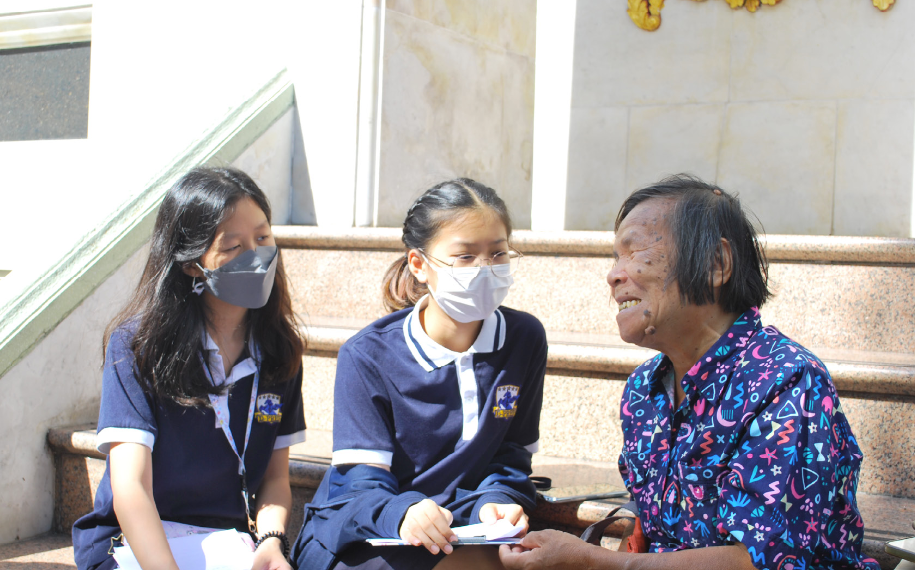
“Stick to your dream, never give up, and do what you think is right.”
Lend a Hand
Try completing every task with your eyes closed, like choosing clothes to wear, cooking, washing the dishes. Well it is incredibly challenging to do these everyday tasks. You will soon realize how difficult it is for the blind to face tough duties everyday. But blindness does not stop people from doing magnificent things.
For instance, Auntie Nid, who has been selling bread for over twenty years, did not let blindness stop her from fulfilling her dreams of working and earning money.
It may be challenging, but with support and determination Auntie Nid never gave up and tried her best.
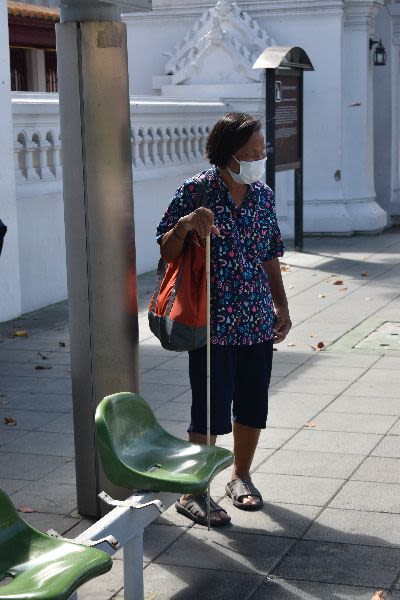
Thailand’s population is 70.07 million and there are 300,308 people in the country who are visually impaired.
They need different types of assistance, for instance assisting in activities in daily living, such as traveling to different places, reading, and communicating.
There are several difficulties faced by a blind person, a challenge in itself, from risk of accidents, such as falling to restrictions in their independence, mobility, and educational achievement.
For instance, lack of access to information is another challenge. Our eyes are used to observe to get in most of the information, newspapers, danger signs, advertisements, and they help us realize what is happening around us.
However, the blind do not get access to that information because they have lost their ability to see.
Furthermore, finding work or a job would be on a whole different level.
To illustrate, there are some jobs that give blind people opportunities to work and earn money, such as teachers who provide resources and support for others.
Another possible job in as a mental health counselor who can help calm effects on people suffering from mental health issues, and this is a position that relies heavily on listening and speaking, and hardly on seeing.
There are many ways to help the blind people such as including them into the community, helping them when they are struggling, and not comparing blind people, because they also do many things in certain ways.
Since the pandemic a certain number of people, including the visually impaired, were not able to work, causing them to be unable to buy food and other essentials.
We can help the visually impaired by offering them goods and materials that would be useful for them.
Moreover, when crossing the road instead of rushing to the other side, we can lend a hand to help them cross the road.
We should not relocate objects without telling the person because it would be harder for the visually impaired to find.
Did you know that nearly 90% of the 1 billion people affected with preventable or treatable blindness live in the developing world?
So when you donate to effective blindness charities, you are helping to give the world sight.
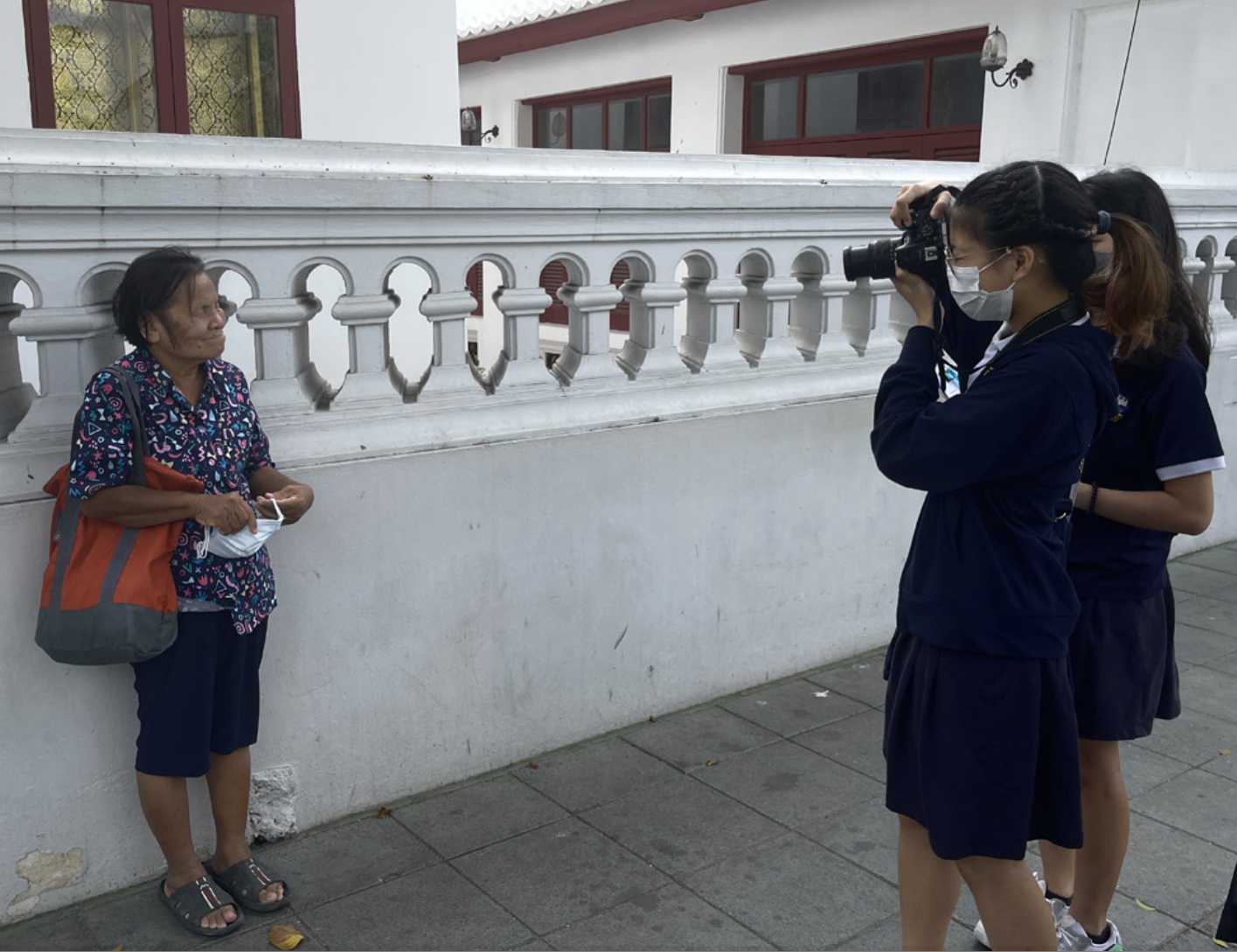
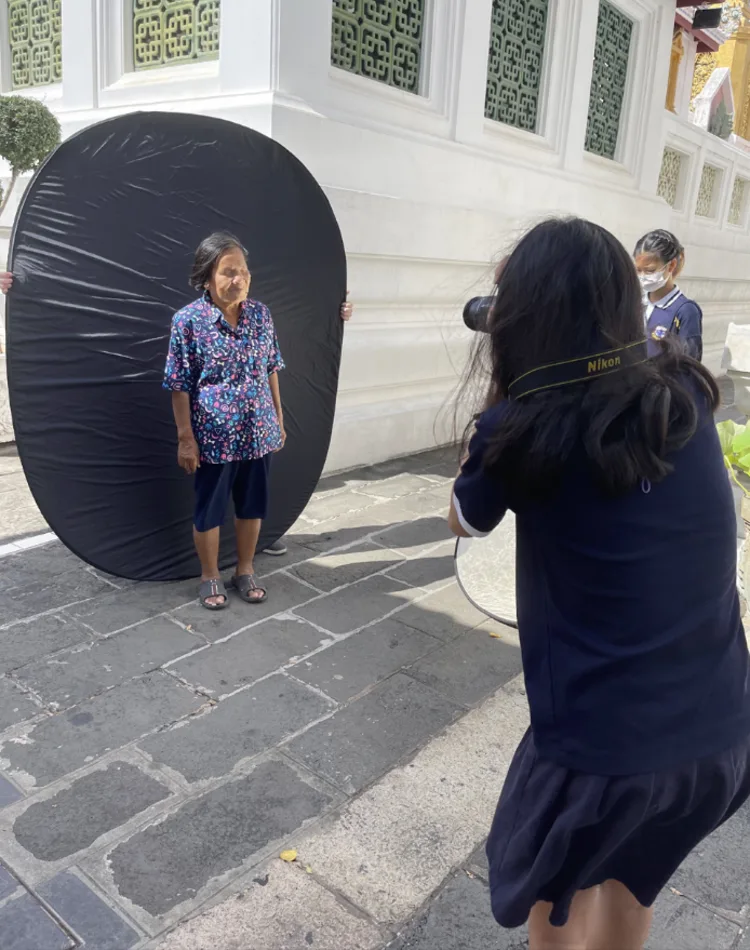




MiMi’s Reflection
Throughout the journey of the learning expedition I have learned various new skills, experienced wonderful opportunities to listen to fascinating stories of others, and most importantly I have been able to share these admirable stories.
This learning expedition began four months ago when our group was first introduced to writers, called PARI. The group interviewed people and shared fascinating stories on a website called PARI or People’s Archive of Rural India. This was an inspiration to begin our “Who is Thailand?” Learning Expedition. This was the first phase on the expedition.
Later on there was a call to action when Peter, one important member of the website named LiCAS News, introduced the website and asked for help on creating articles from the children’s points of view. This was when the call to action started.
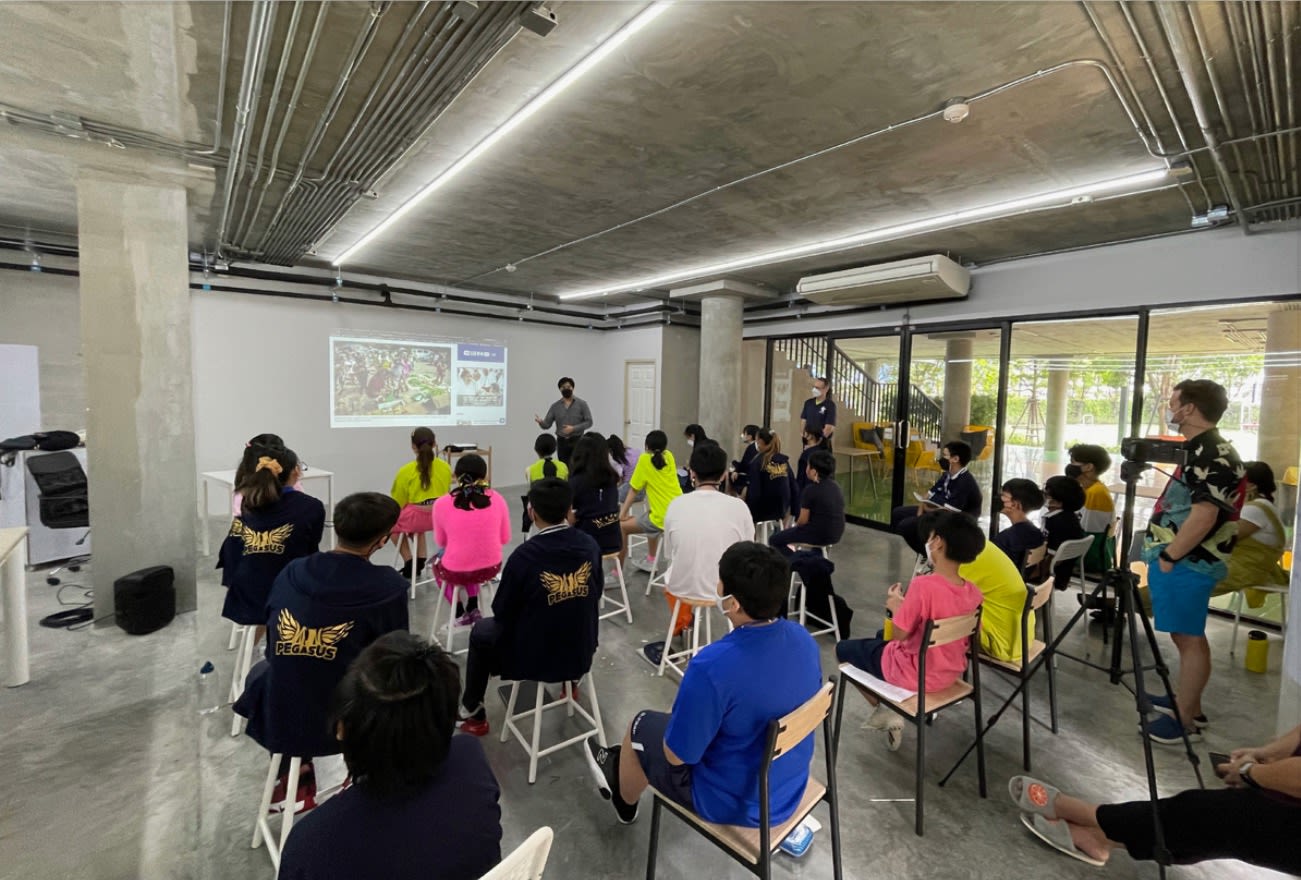
Next started the interview phase, where my friends and I learned techniques and critiques of interviewing. For instance, body language, how the body should appeal when interviewing, methods on how to make the interview more fluent, and finally practicing. Learning these methods improved our conversational skills and confidence in conversations with others. When interviewing I get to experience different points of view of a person from the story the person shared, and from getting to know more about the person.
Furthermore, for the next few months I started learning about writing biographies in preparation for writing about the person my assigned group was going to interview. This was a big help in improving my writing, by being adaptable about sources I was writing about, completing detailed writing, and being open minded to different genres of writing.
After learning numerous things and preparing for the actual scenario, it was the day where my assigned group went out into the field to interview our person. In the beginning, I was very nervous about what would happen with the interview, but after ten minutes in the conversation I was getting less nervous. Hearing Pa Nid’s story, the person our group interviewed, was touching. Pa Nid is resilient, hardworking, and honest. When Pa Nid faces a challenge she always finds a way to overcome it. She inspires me to never give up even though it may be difficult.
In this experience I have learned various new skills that will be useful in life and the job I may take in the future. Our article shares the story of Pa Nid, overcoming challenges she faces. This helps people understand more about blindness and the difficulty visually impaired people face. In this learning expedition, I have learned to be courageous, adaptable, and self managed. Being courageous in interviewing people I just met, adaptable to different situations, and managing myself well on completing tasks on time. In this journey, I have understood and learned numerous things that I will never forget.
PunPun’s Reflection
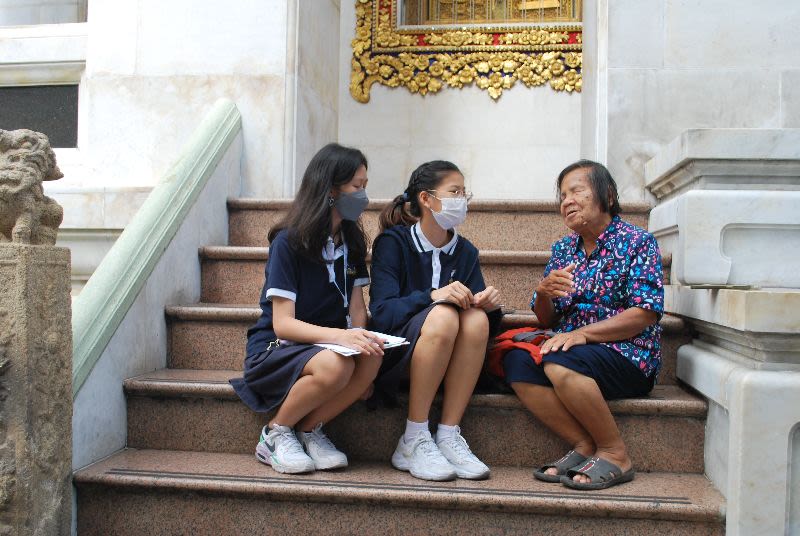
In this learning expedition, I have learned about myself that I can attempt and show self management by finishing my article on time. Furthermore, I have learned how to be more confident when interviewing people.
It was very hard at the beginning, but then I tried to calm myself down and be more optimistic. Later, the interview was more comfortable for Mimi, Auntie, and me. I have learned many relationship skills like respect and faithfulness.
Furthermore, I was inspired by the person I interviewed, because she is resilient, never giving up when she has faced many challenges like when someone stole her lottery tickets, but she still overcame this challenge. She lives alone so she has to do everything by herself, and it is very difficult for someone that is blind to live by themselves. She is a very hard working person, because she wakes up at 7.00am everyday except on Monday to prepare to set up her bread shop.
In the future, I will be resilient all the time even when I want to give up. The skills that I have learnt in this expedition will be useful in life and future jobs I may take. I will apply all of the skills I have learnt to my future life experiences.
Next, I showed active citizenship by publishing this article. People will be more aware about the blind people in Thailand. Out in the world of the internet, there will be more available information about the struggles the blind people have and how blindness has affected their lives.
This expedition is a very good learning experience for me to learn more about this world. I will use the skills that I have learned from my experience to apply to in my life and job in the future. I learned that there are more people in this world than I knew that are struggling from disabilities.
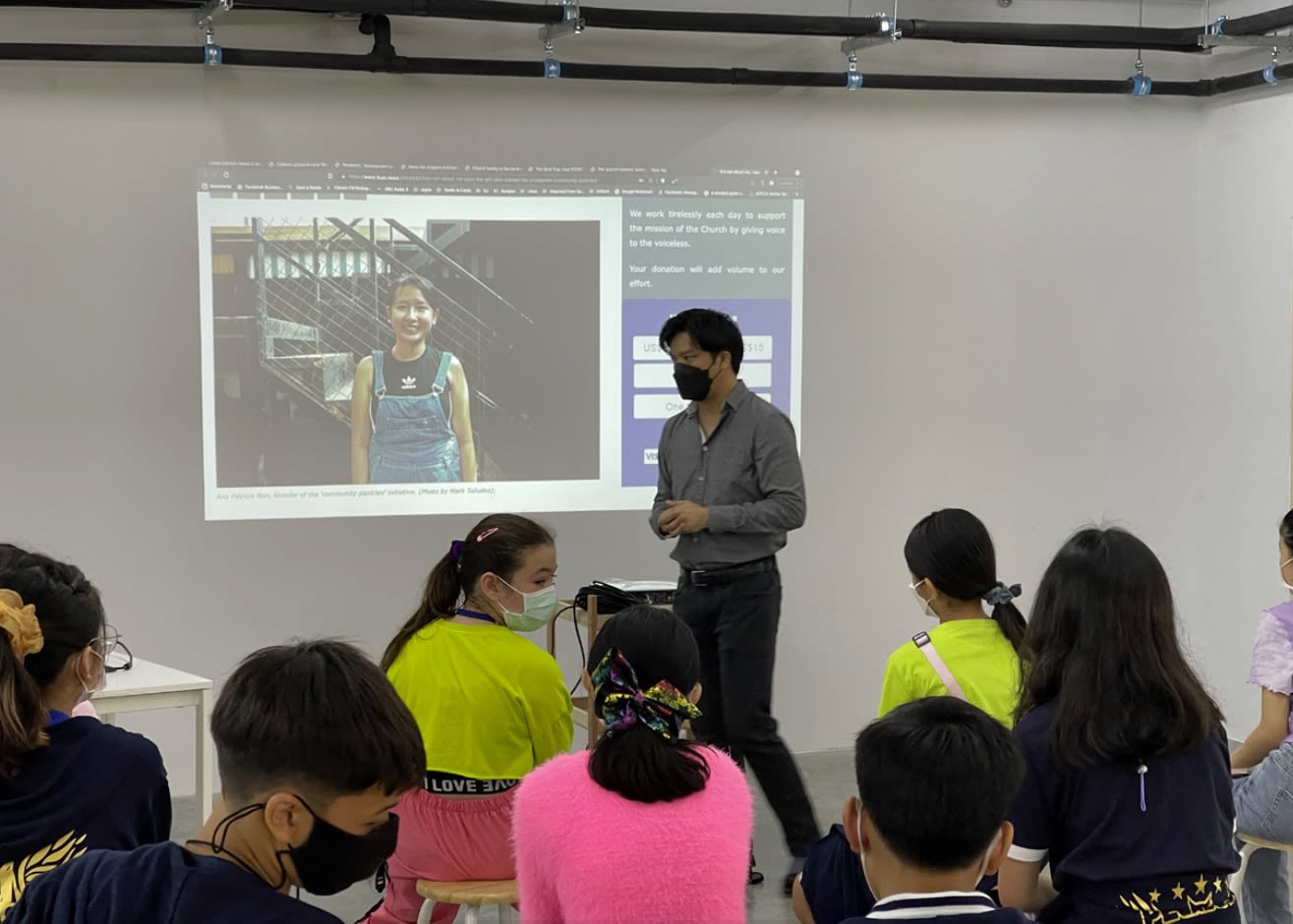
Peter Monthienvichienchai, Executive Director of LiCAS.news, inviting pupils at D-PREP International School to tell the stories of those living on the fringe of society in Asia. (Photo by D-PREP International School)
Peter Monthienvichienchai, Executive Director of LiCAS.news, inviting pupils at D-PREP International School to tell the stories of those living on the fringe of society in Asia. (Photo by D-PREP International School)


